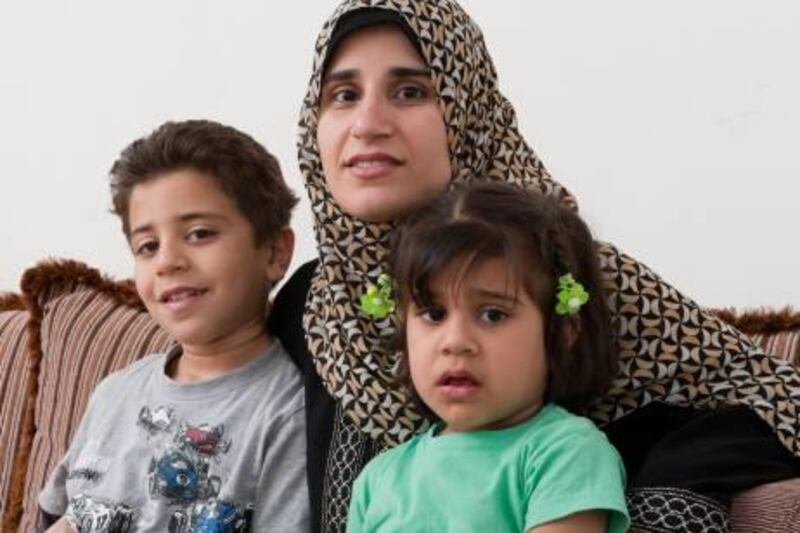Khaled al Kurdi would love to eat a chocolate bar. In fact, he would settle for just a small bite. Or a bag of crisps. Or even some scrambled eggs.
But most of the foods we enjoy are unsafe for him to eat. Khaled, seven, and his three-year-old sister, Khulood, have phenylketonuria, or PKU. It is a metabolic disorder and enzyme deficiency that makes the body unable to break down part of a protein called phenylalanine, which is present in most foods.
Too high a level of this protein can cause brain damage. The children were diagnosed with the rare disease when they were two weeks old.
"We are having a difficult time with him lately," Khaled's mother, Dr Asma al Kurdi, said. "He's been stealing money to buy food from the school canteen, and he's so smart, because when the canteen workers stopped selling him anything after we begged them not to, he got a friend to go buy snacks for him."
Dr al Kurdi monitors everything that her son and his sister put in their mouths.
The children have special milk, rice, flour and pasta that they are able to eat. They can also eat almost all fruits and vegetables. Meat, fish, chicken, eggs and cheese are all out of the question. Everything they eat is weighed on a scale beforehand.
"It's been difficult. We cannot travel, go to restaurants, do a single thing that is not pre-planned. My husband and I changed the way we eat and cook, but my children are worth it," Dr al Kurdi said.
Globally, PKU is estimated to affect one in 25,000 newborns. There are no figures available for the UAE.
Dr al Kurdi, a general practitioner from Syria who works at a Ministry of Health primary healthcare centre in Ajman, is married to her first cousin. Both learned they were carriers of PKU after Khaled was born.
"Premarital testing was recently introduced in the UAE, and does not include screening for absolutely everything; only core diseases. There is no way we could have known," she said. PKU requires a specific test that relies on genetic chromosomal studies.
"I had two babies born before Khaled who died - one was nine months old and the other was 20 days old," Dr al Kurdi said. The cause of death for both was unclear.
Khaled was born with a hole in his heart, so the shock at learning about PKU was an extra burden for his parents. "But the hole has since closed, and we are instead left with the PKU," his mother said.
Despite the couple's decision that Khaled would be their last child, Dr al Kurdi became pregnant again and had what she described as "the most difficult and stressful nine months" of her life.
"I was worried the entire time, because there was a 25 per cent chance to have a baby affected with the same disease, another 25 per cent chance of being normal and a 50 per cent chance of being a carrier," she said.
Dr al Kurdi decided to go ahead with the pregnancy, but when Khulood was born, it was clear she too was affected. "By then, I knew what to look for. I could tell as soon as I started to breastfeed her, from her fidgety nervousness and the sudden rashes and the way she was crying, that she was also unable to break down the protein in the milk."





